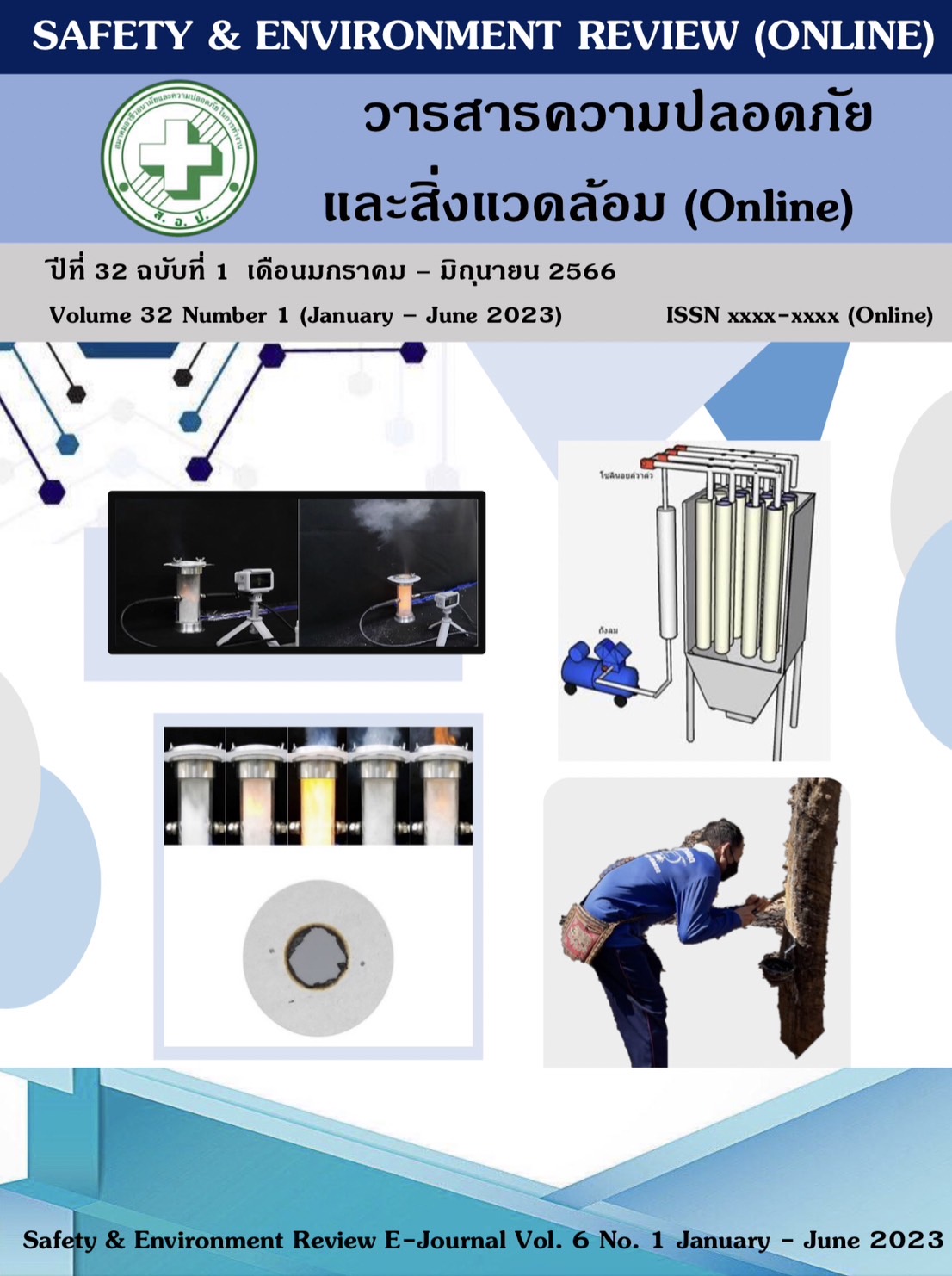STRESS REDUCTION TRAINING PROGRAM FOR YOUTH COUNSELOR STUDENTS IN A SECONDARY SCHOOL IN BANGKOK
Keywords:
stress, youth counselors, stress reduction program, secondary school studentAbstract
Youth counselor student is an important mechanism within the student support system, particularly concerning mental health. These students require training in their own mental health approaches before they can mentor their friends. The purpose of this research was to study the stress levels of youth counselor students before and after attending the stress reduction training program. This study was experimental research on stress reduction training program for 57 youth counselor students from secondary schools under the jurisdiction of the Bangkok Secondary Educational Service Area Office, Region 1. The research instruments consist of four components: a general information questionnaire for youth counselor students, a stress assessment questionnaire administered before and after participating in the program, a stress reduction training program integrating mindfulness techniques and self-awareness exercises conducted by a psychiatrist over a period of 6 hours, and a satisfaction evaluation questionnaire.
The data obtained from the stress assessment and the questionnaire were statistically analyzed for mean, percentage and standard deviation. The t-test was used to compare pre- and post-programmed stress scores. The results showed that most of the youth counselor students were female, accounting for 64.91%, with an average age of 15.23±1.50 years. The youth counselor students (43.86%) had high stress levels before joining the program. After participating in the stress reduction training program, the level of stress was significantly reduced (p<0.001). Youth counselor students reported a positive effect on self-awareness, stress management skills and the ability to give advice to friends. The results of the study indicated that the stress reduction training program could reduce the stress level of youth counselor students. Therefore, relevant agencies should implement training programs to reduce student stress so that students can manage their own stress.
References
Chitrathorn C. Stress [Internet]. 2023 [cited 2023 Feb 7]. Available from:
https://www.rama.mahidol.ac.th/ramamental/generalknowledge/general/05142014-1901
Department of Mental Health. Suicide Rates by Age Group in the Year 2019 (2562 B.E.) [Internet]. 2019 [cited 2023 Feb 9]. Available from:https://www.dmh.go.th/report/suicide/ viewg1.asp?id=28
The most common issue of stress among Thai adolescents seeking guidance from the mental health helpline 1323 [Internet]. 2019 [cited 2023 Feb 9]. Available from:https://www.thaipost.net/main/detail/56782
Phuprasom N. The Situation of Student Health in Thailand in the Year 2021[Internet]. 2022 [cited 2023 August 30]. Available from: https://hp.anamai.moph.go.th/th/research-person/download?id=104012&mid=35022&mkey=m_document&lang=th&did=24069 (In Thai)
Kaewkaewpan W. The study of stress of teenage students studying in the mathayom-suksa 6 of school under secondary educational service area office 10 in samutsongkhram province. Journal of Education Burapha University 2021;32(2):13-28. (In Thai)
The Ministry of Public Health collaborates with the CHU Network to establish 78 counseling centers nationwide, fostering student peer counselors (Youth Counselors, YCs) to create happiness within schools [Internet]. 2023 [cited 2023 Feb 7]. Available from:https://www.obec.go.th/archives/832181
Office of the Basic Education Commission, Ministry of Education. (2010). Student Training Program Youth Counselors. Bangkok: Cooperative Agricultural Federation of Thailand Limited.
Arphorn S. Report of the Project on Promotion of Mental Health Program for School Students in Bangkok 2022 (In Thai)
Hatami F, Ghahremani L, Kaveh MH, Keshavarzi S. The effect of self-awareness training with painting on self-efficacy among orphaned adolescents. Pract Clin Psychol 2016;4: 89-96.
Ahmed HAA, Elmasri YM. Effect of self awareness education on self efficacy and sociotropy autonomy characteristics of nurses in psychiatry clinic. Life Science J 2011;8: 853-63.
Morin, A. Self-awareness part 1: Definition, measures, effects, functions, and antecedents. Social and personality psychology compass, 2011;5(10), 807-23.
Creswell, J. D.Mindfulness interventions. Annual review of psychology 2017;68, 491-516.
Witkiewitz K, Bowen S, Douglas H, Hsu SH. Mindfulness-based relapse prevention for substance craving. Addict Behav 2013;38: 1563-71
Sophoworakij N, Sughondhabirom A. Effect of self-awareness training program on 5 factors of mindfulness and stress to patients with amphetamine use disorder. Chula Med Bull 2019;1(6):625 – 633 (In Thai)
Srinuan P. The effects of stress management program on stress of the nursing students, Journal of Health Research and Innovation 2019;1(6):186 – 195 (In Thai)
Leelawai P., Wacharasindhu A. Stress coping program in senior high school students of Pramandanijjanukhroah School. Chula Med Bull 2018;1(6): 615 – 623 (In Thai)
Downloads
Published
Issue
Section
License

This work is licensed under a Creative Commons Attribution-NonCommercial-NoDerivatives 4.0 International License.
This article is published under a Creative Commons Attribution-NonCommercial-NoDerivatives 4.0 International License (CC BY-NC-ND 4.0), which allows others to share the article with proper attribution to the authors and prohibits commercial use or modification. For any other reuse or republication, permission from the journal and the authors is required.



